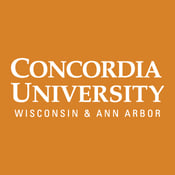-1.jpeg)
Special education teacher programs
We have multiple pathways to help you secure a teaching career in special education. Choose to earn your initial licensure or add-on licensure through accelerated 8-week online courses.
From your bachelor's to your master's degree, we offer multiple special education licensures to fit your interests and your calling to serve students with special needs.
From licensure to degrees in special education, we offer accelerated courses in an online format.
Program pathways
Initial Bachelor's
I have not yet completed a bachelor's program in any subject area.
Post-Bachelor's Initial License
I have a bachelor's degree in a non-education related field, and I need to earn my initial teaching license.
Add-on License
I have my teaching license,
and want to add-on a special education licensure.
Find the information you need
Why Concordia
Personal
Small classes are led by expert faculty who are
practicing teachers & administrators
Fully Online
100%Student Teach
In-person fieldwork experiences & student teaching
will build your skills and confidence.
Become a special education teacher
Bachelor's + teaching license
Our online, accelerated bachelor's program allows you to earn both your WI teaching license and a bachelor's degree in K-12 special education (cross categorical) in as little as three years.
Post-bachelor's licensure
Concordia's Accelerated Program for Teacher Licensure (CAPTL) is a post-baccalaureate program designed to help you earn your initial WI teaching license for cross-categorial special education in K-12. And there's an option to go for your master's degree in education.
-1.jpeg)
Add-on SPED licensure
For individuals that hold a valid and current teaching license
Enhance your skillsets and knowledge in cross-categorical special education to better teach and lead K-12 students with specific disabilities and special needs. Learn to develop inclusive classrooms and effective learning strategies for the following individuals:
- Intellectual disabilities (ID)
- Specific learning disabilities (SLD)
- Emotional/Behavioral Disabilities (EBD)
Did you know?
There are options in this program to earn your licensure only in as little as one year. Or complete your master's in special education in two years.
Funding your education
Concordia's payment plan allows you to break tuition into automatic monthly payments
Scholarships and financial aid are available for qualifying students
Funding your education
Uncommon Scholarships
Concordia offers Uncommon Scholarships to help bring this investment in your future within reach. These scholarships, which range from $150-$500 per three-credit course, are available for:
- Concordia alumni
- Employees of our corporate and academic partners (AAH, Edcor, Bright Horizons, & more)
- Employees of qualifying Christian churches and schools
- Veterans and dependents
Tuition Reimbursement
Your employer/school district may offer tuition reimbursement, minimizing the cost to you. Ask your HR department if you are eligible.
Payment Plans
Concordia's payment plan allows you to break tuition into automatic monthly payments, making budgeting for your new career a reality.
Financial Aid
Qualifying students may be eligible for Federal Aid. When you fill out the FAFSA make sure to select Concordia University Wisconsin.
- CUW FAFSA code: 003842
HEAB Service Loan
Eligible students may qualify for the HEAB Service Loan through the State of Wisconsin. Funds are limited and are renewed yearly. Contact us to learn more.
Frequently asked questions
Students pursuing an add-on Wisconsin licensure will need a teaching license.
If you wish to pursue an initial teaching license or degree only, a teaching license is not required.
In short, yes! Below is an overview of our generous credit-transfer policy.
For undergraduate students:
Up to 84 undergraduate courses may transfer in.
For post-baccalaureate CAPTL students:
Up to 6 graduate credits that meet the necessary criteria within the last 7 years.
For add-on licensure/master's degree students:
Up to 50% of the required coursework may be transferred in, which is up to the discretion of the program director.
